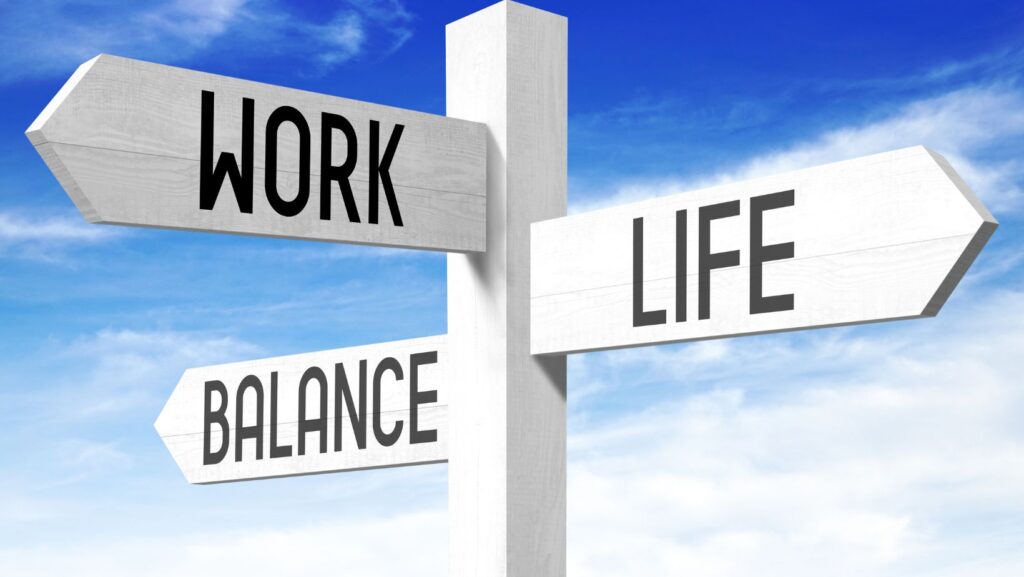Work-Life Balance Definition
As an expert in work-life balance, I delve into the essence of its definition. Work-life balance definition encompasses the equilibrium between professional responsibilities and personal pursuits. Achieving this balance is crucial for overall well-being and productivity.
Work-life balance definition involves understanding that it’s not just about dividing time between work and personal life but also about harmonizing these aspects to reduce stress and enhance satisfaction. Striking a healthy work-life balance may involve setting boundaries, prioritizing tasks effectively, and making time for activities outside of work commitments.
In today’s fast-paced world, work-life balance definition many individuals struggle to maintain a satisfactory work-life equilibrium, leading to burnout and decreased quality of life. Understanding the true meaning of work-life balance is essential for creating a fulfilling lifestyle that promotes both professional success and personal happiness.

History of Work-Life Balance
In exploring the history of work-life balance, work-life balance definition it is intriguing to note how societal shifts and evolving attitudes have influenced this concept over time. The roots of work-life balance can be traced back to the industrial revolution when labor laws began to address excessive working hours and poor conditions. In the early 20th century, with the rise of union movements, there was a push for standardized work hours and better treatment of employees.
As we progress into the mid-1900s, especially after World War II, there was a significant shift in focus towards employee well-being and satisfaction. Firms started implementing policies like paid vacation time and healthcare benefits to attract and retain talent. The emergence of dual-income households also played a role in reshaping expectations around balancing work and personal life.
With the advent of technology in the late 20th century, notably the internet and smartphones, boundaries between work and personal time blurred for many individuals. While technology brought flexibility, it also led to challenges such as constant connectivity and difficulty unplugging from work responsibilities after hours. Companies started recognizing the importance of promoting work-life balance not just for employee welfare but also for productivity and overall success.
Fast forward to today, where remote work has become increasingly prevalent due to global events like the COVID-19 pandemic. This shift has forced organizations to reevaluate traditional notions of work structure and adapt policies that support employees in managing their professional duties alongside personal commitments. The ongoing conversation surrounding work-life balance continues to evolve as society navigates new ways of working in an ever-changing landscape.
Understanding the historical context of work-life balance sheds light on how far we have come in acknowledging its significance in modern workplaces. By reflecting on past developments, we can appreciate the strides made towards creating environments that prioritize both professional fulfillment and personal well-being for individuals across diverse industries.

Importance of Work-Life Balance
Maintaining a healthy WORK-LIFE BALANCE is crucial in today’s fast-paced world. It ensures that individuals can effectively juggle their professional responsibilities with personal well-being. Striking this equilibrium leads to higher job satisfaction, improved mental health, and overall increased productivity.
Benefits of Work-Life Balance
- Enhanced Productivity: When employees have time to recharge outside of work hours, they return to work refreshed and energized, leading to better focus and efficiency.
- Reduced Stress Levels: Balancing work and personal life helps in reducing stress levels that can lead to burnout. Employees who feel less stressed are more likely to stay motivated and engaged in their tasks.
- Improved Health: Neglecting personal time for work consistently can take a toll on physical health. By prioritizing leisure activities or spending time with loved ones, individuals improve their overall well-being.
Statistics on Work-Life Balance
| Survey | Findings |
| Harvard Business School Study | 94% of working professionals reported working more than 50 hours per week |
| American Institute of Stress | 83% of U.S. workers suffer from work-related stress |
As we adapt to an increasingly digital and interconnected world, the boundaries between work and personal life can blur easily. Employers play a crucial role in promoting work-life balance by offering flexible schedules, remote work options, and wellness programs.
Ultimately, achieving a harmonious WORK-LIFE BALANCE is not just beneficial for individuals but also for organizations looking to retain talent, boost morale, and foster a positive workplace culture. It’s about finding the right mix that allows us to excel professionally while still enjoying our lives outside of work.


